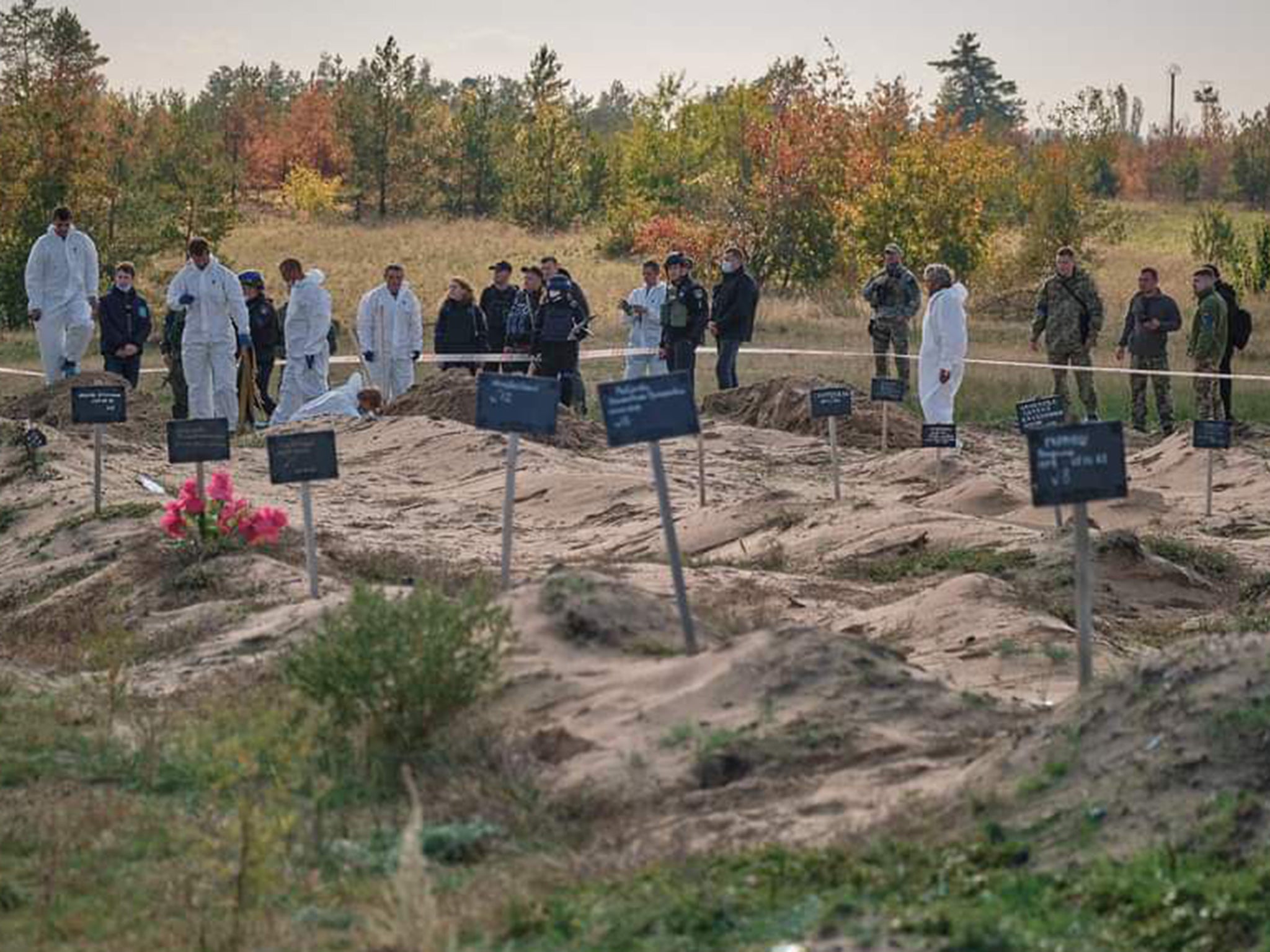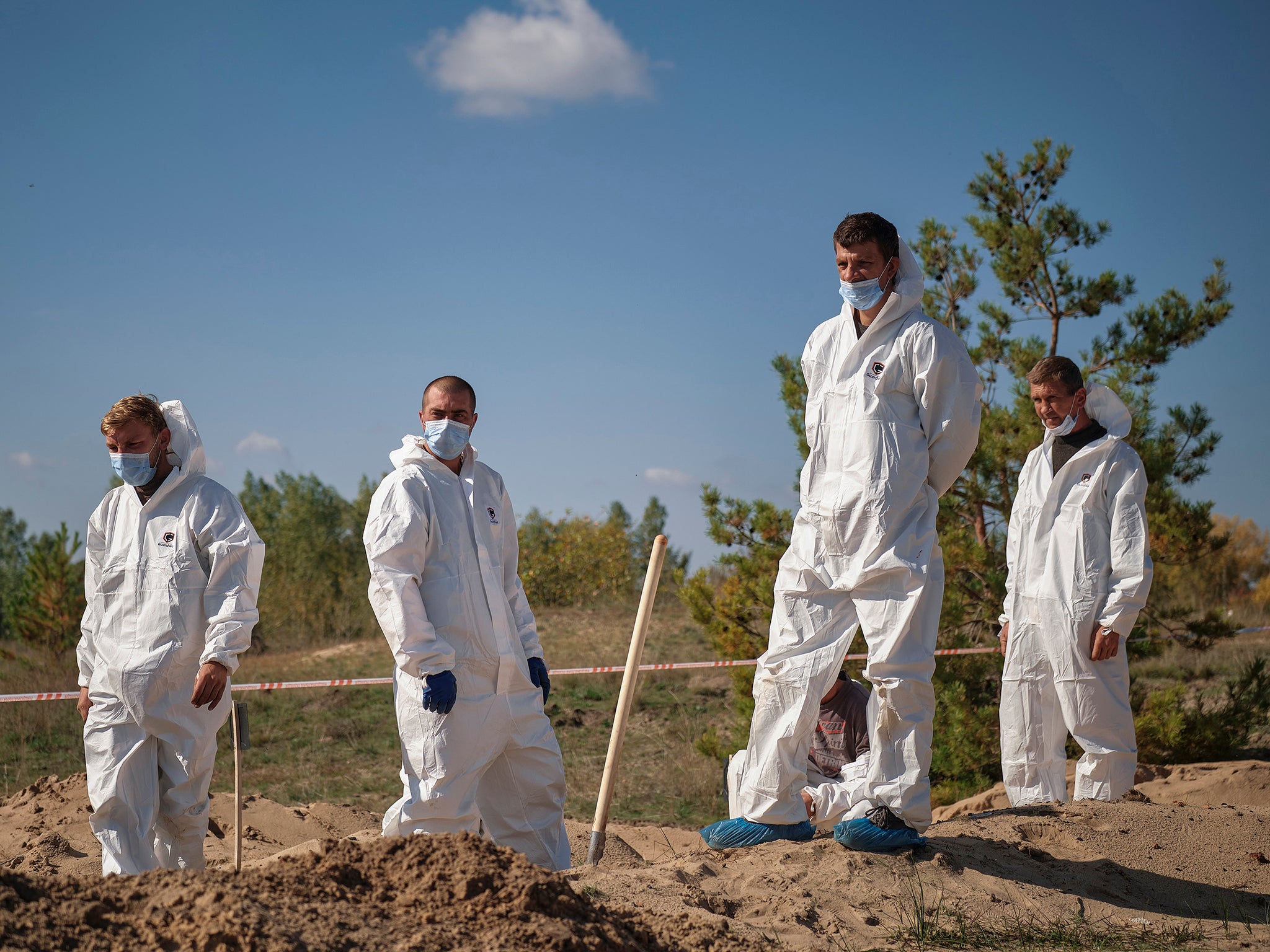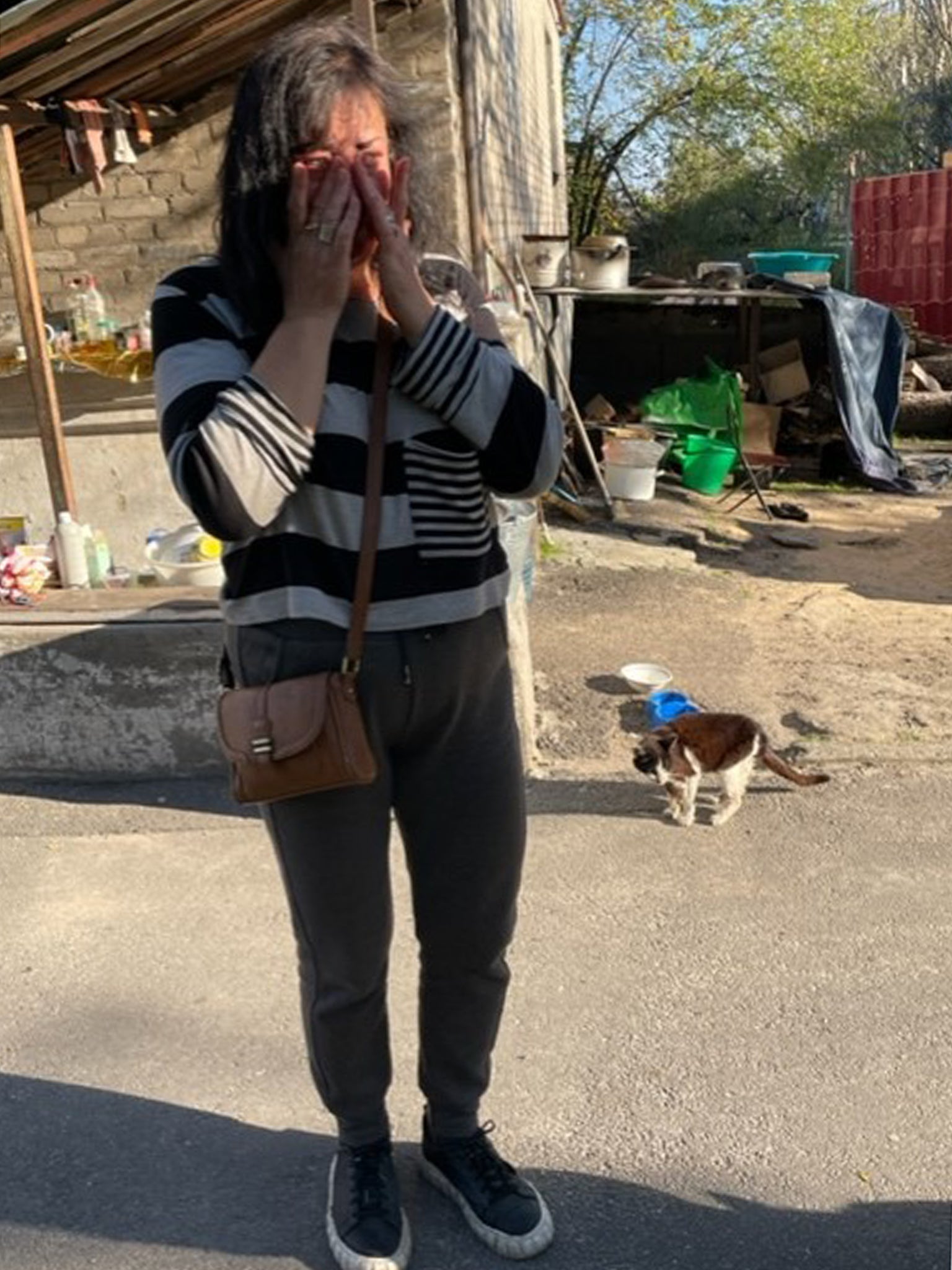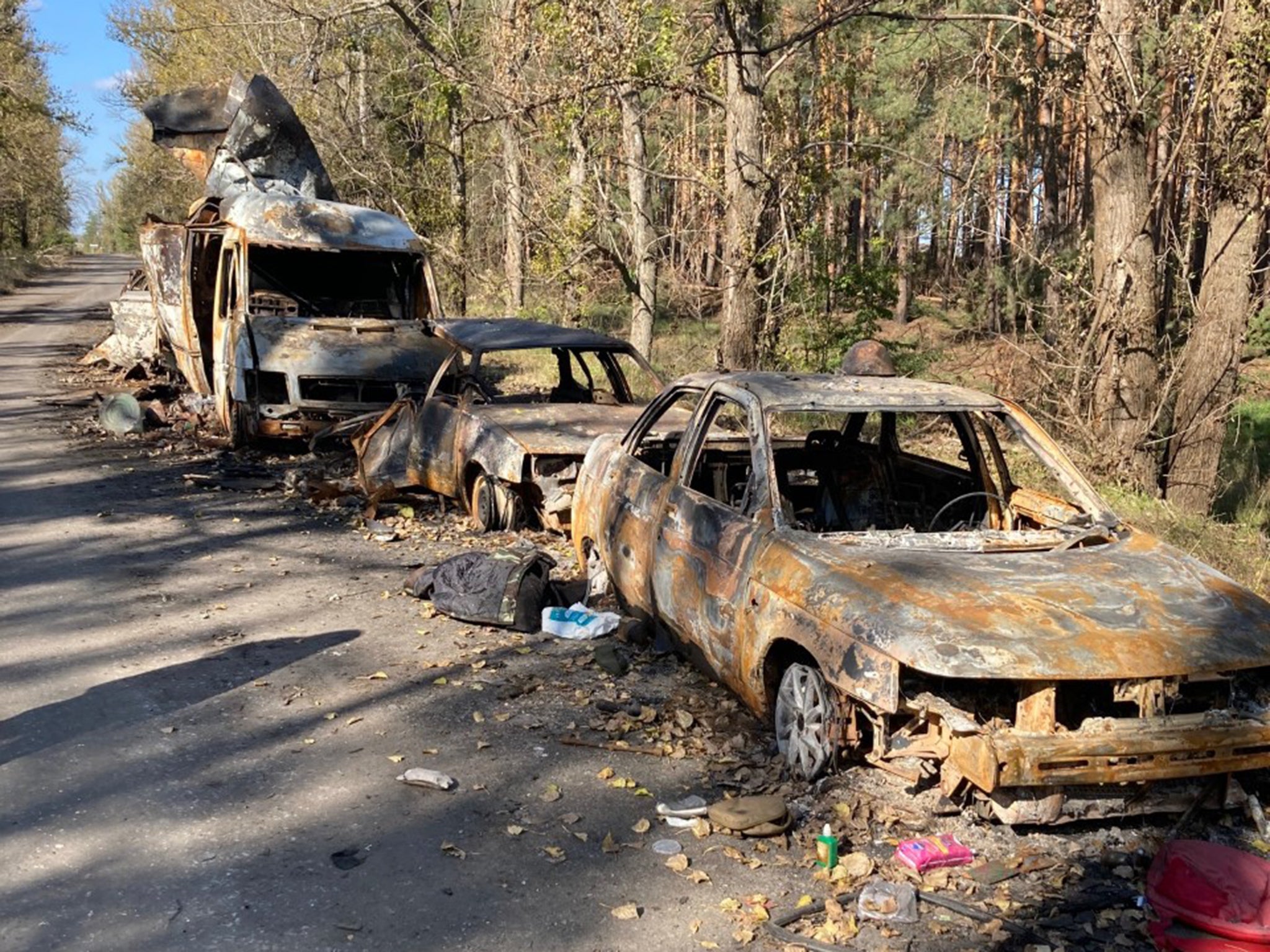‘Terrible things happened here’: Entire families believed to be inside mass graves in Ukraine’s Lyman
Kim Sengupta reports from Lyman, where Ukrainian officials say around 200 bodies have been found, including children and babies, as residents tell of a shattered town


The fields are lit by pale autumn sunshine and covered in red and gold fallen leaves. They are also scarred with dark shallow graves – scenes of mass burial that have become painfully familiar in Ukraine’s bitter war.
The sites outside Lyman, in the Donetsk region, contain around 200 bodies, say Ukrainian authorities – of civilians, including babies and children, and soldiers who had died during four months of Russian occupation of the city.
It remains unclear how many of those who died were deliberately killed or were victims of the missiles, air strikes and shelling during a time when there has been no power and water and barely any medical services.
Exhumed bodies will be moved to Kramatorsk and Dnipro for forensic analysis. Yevhen Zhukov, a senior police officer, says “entire families lie in mass graves we have found, there are burials of children born between 2019 and 2021”.
Pavlo Kyrylenko, the governor of Donetsk region, makes clear that “the exhumation and reburial of those who died during the occupation has begun”.
The news of the Lyman graves comes after Ukrainian authorities announced in recent days that the bodies of 534 civilians have been discovered in just one part of the northeast of the country as Russian forces retreated in the face of a Ukrainian offensive.
Serhii Bolnivov, chief investigator for the Kharkiv region, said: “The 534 bodies we have found so far include 226 women and 19 children. This is only from this region, Kharkiv. This total does not include what is being found in the Donbas. The final number, unfortunately, is likely to be very high.”

Bolnivov claimed that 22 “torture chambers” have been found in the Kharkiv region. “In almost all large towns and cities, where Russian military units were based, they set up such places of detention of civilians and prisoners of war for torture.
“We understand it is very difficult for victims to testify in many cases, like rape. We have information about rapes in these chambers. We are appealing to women who were raped to come forward. We are registering cases of torture”, he said.
People detained by Russians in Lyman say they were forced to dig graves and dump bodies there. Bohdan, who was arrested and held for three days, says: “Dead bodies from the streets were taken outside to be buried, there were also bodies in some houses and offices which were taken there as well. A lot of them have been killed, I don’t know how, if it was bombing or they were shot or what. It was not wise to ask such questions.”
Bodies of dead Russian soldiers, swollen and putrid with swarms of insects hovering over them, lie unburied in parts of the city. Ukrainian troops acknowledge they posed a health hazard but said they did not know what was going to be done with the corpses.

“As you can see everything is broken here. We are trying to sort out things and fight a war as well”, says a sergeant, with sounds of shellfire coming from the valley beyond. “We have investigators looking at the graves, it is a police matter.”
Some of the residents killed in missile and artillery strikes were buried in gardens. “We spent our lives in the basement during the bombing, that was the only way to survive”, says Valentina Kovaleva, 47. “We came out to cook what we had, meet briefly and see if people had been injured or killed.
“We buried an old lady who died, and a young girl lost her legs and then bled to death in the yards at the back. The bodies were taken away later, we don’t know what happened to them.”

Standing outside the ruins of her home, Natalya Shevchenka, is despondent about her shattered life. “I have been living in a basement, everything I had is now gone with my house destroyed, ” she says. “My home has gone and my job has gone. Terrible things happened here, people getting killed, injured. I am not surprised they found dead bodies.”
A small dog hobbles by on three legs. “One of his legs was injured and he chewed it off. You see, even the animals did not escape what happened”, says Shevchenka.
People gather in the city square to wait for welfare packages as officials hold briefings about the discovery of the mass graves. Many are elderly women seeking their pension. Tamara Alexanderovka, 70, and Tatiana Timofeiva, 75, have pushed their 93-year-old neighbour, Marta Sergieva, four kilometres in a wheelchair to try and get their money.
“It is very difficult here, we barely have enough to eat. I am the head of our street committee and when the Russians were here we managed to get them to give us some bread and other things,” says Alexanderovka.
“Now we are back in Ukraine and that is good. We know they are trying to find the dead and that’s very necessary. But they need to make sure the rest of us survive as well, we can’t live for long like this”.
Join our commenting forum
Join thought-provoking conversations, follow other Independent readers and see their replies
Comments



Bookmark popover
Removed from bookmarks